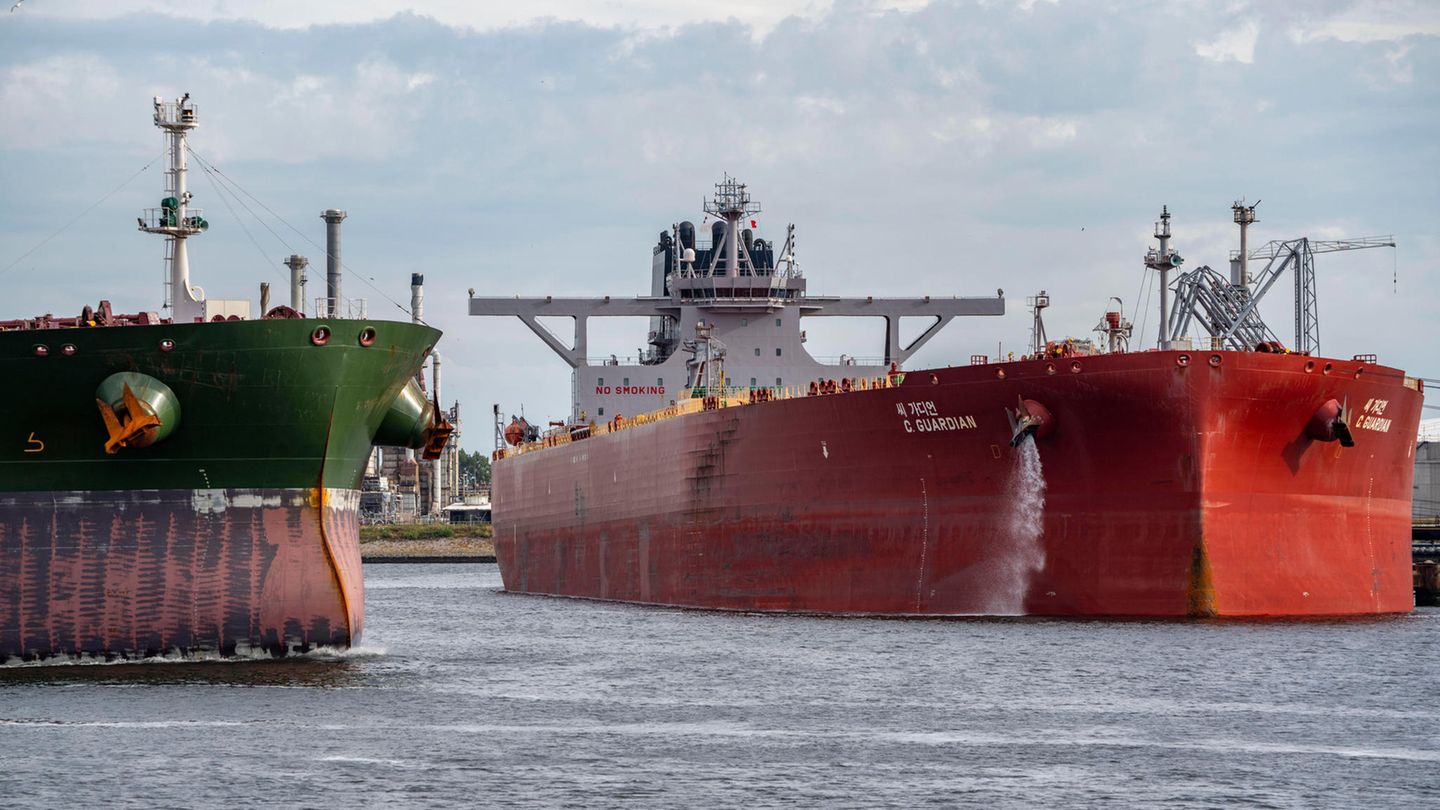Putin is not yet serious about the blockade threatened following the G7 price cap. This is indicated by the transport data for December
In December, Western insurers continued to insure Russian oil shipments to India, China and Turkey. This is a sign that President Vladimir Putin has yet to follow up on his announcement to halt oil sales under the G7 and EU price regime.
After an evaluation of the shipping route documents and insurance coverage by the Financial Times About a quarter of Russia’s sea shipments of crude oil have been secured by Western companies since the restrictions went into effect Dec. 5.
Under the G7 price cap introduced in December, buyers of Russian oil can only use Western services such as insurance and brokerage services – the backbone of global oil trade at sea – if they can prove they paid less than 60 dollars a barrel.
Moscow has repeatedly threatened to block trade under price cap rules. Putin on Tuesday signed an edict formally banning the sale of crude oil and related products through contracts that “directly or indirectly contain a price cap mechanism” from February 1.
So far, the price cap has had no financial impact on the Kremlin, as Russia’s flagship commodity, Ural crude, is currently trading well below $60. Ural has been sold at a discount to Brent since the start of the Russian invasion of Ukraine in February.
The decree will remain in force for five months. However, under certain circumstances, Putin can also issue a “special permit” allowing some supplies to continue below the cap, a phrase that potentially paves the way for Russia to continue selling crude to producers in markets like India and the China.
18 Westbound loads secured
At least 18 shipments of Russian crude have been loaded onto Western-insured tankers since the price peak began on Dec. 5, according to the FT’s analysis of datasets by Kpler, a cargo data and analytics specialist. That’s about a quarter of the 63 vessels tracked by Kpler that carried Russian crude between December 5 and 25.
At least nine tankers were bound for India, six for China and one for Turkey, the data showed. The FT audited Western Suppliers’ insurance for each vessel. Four more shipments of Russian crude, insured by Western companies, set sail for Bulgaria. The country is exempt from the EU ban on importing Russian oil until the end of 2024 because its refineries depend on it.
The bottom line is that Russia exported about 50 million barrels of domestic crude by sea in the first three full weeks of December, up from 67 million barrels in the same period in November. Kpler analyst Matthew Wright attributed the decline to a weather-related drop in exports from Eastern Siberia and an increase in refining activity in Russia, which impacted crude oil exports.
Many reinsurers agree
While Western companies can still insure cargoes of Russian oil under the cap, it has become more difficult for shipowners to obtain certain types of insurance.
Global protection and compensation insurers are apparently using contract negotiations due to expire at the end of the year. They issued changes to some policies, including carrier liability, on Dec. 23. He recently ruled out the damages deriving from the Ukrainian conflict “or one of its effects”.
Insurers such as the American Club said their reinsurers wanted to reduce conflict-related risk by no longer offering certain coverages that needed to be renewed by January 1.
The year-end deadline is fast approaching in the London market and market participants report that there is very little interest from reinsurers in extending so-called war risk insurance to the region.
As a senior market contact, who wished to remain anonymous, said: The broad exclusions demanded by reinsurers in relation to Ukraine are causing “enormous problems” for firms seeking to insure assets in the region. Many of them would have to underwrite “net”, i.e. without reinsurance protection.
This development could also lead to complications in shipping Kazakh oil, particularly for the Caspian Pipeline Consortium. The consortium transports oil from landlocked Kazakhstan to the Russian port of Novorossiysk for onward shipment across the Black Sea. Since Dec. 5, the CPC terminal has loaded 38 vessels, all of which are insured by Western, according to Kpler.
Copyright The Financial Times Limited 2022



